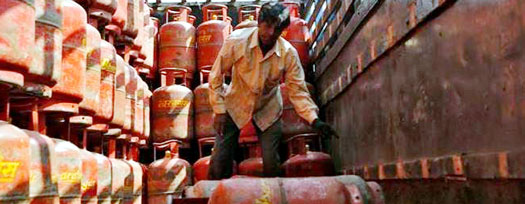The very bane of public policy has been the Government’s interference in subsidising goods and services. Subsidies must be replaced with direct cash transfers
The Modi Government has revolutionised the way subsidies are disbursed to beneficiaries by leveraging technology, especially the use of direct benefit transfer (DBT) on the Jan Dhan-Aadhaar-Mobile platform. This has made a dent on pilferage, and gargantuan resources, thus saved, are being used for development and enhanced funding of welfare schemes for wider and deeper coverage. But large-scale pilferage still continues. This happens in ways that even escape the radar of our ever alert Prime Minister.
At the fundamental level, it can be sourced to the very existence of controls in sectors, such as food, fertilisers, petroleum, oil and lubricants (POL), and power, which continue to guzzle huge amounts despite savings via DBT. Here, a question arises: How do controls lead to pilferage?
Take, for example, food and fertilisers. To make these affordable to the poor, the Government controls their maximum retail price (MRP) at a low level, unrelated to the cost of production and distribution. The differential amount is reimbursed to manufacturers/agencies as subsidy. Whereas, 80 per cent of the population gets food at a subsidised rate, as regards fertilisers, all farmers have access to these at low MRP.
Among POL in the case of LPG, even as oil marketing public sector undertakings (PSUs) sell at full price, beneficiaries receive subsidy in their account. However, kerosene is sold to them at low (subsidised) price. Retail prices of petrol and diesel are de jure decontrolled, but de facto, the Government controls them by issuing diktat (albeit unwritten) to PSUs, which account for over 90 per cent of the sales.
When the Government orders manufacturers/suppliers to sell products at a price lower than what it costs, it is obliged to fully compensate them for the shortfall. This is where the rub lies. Assured of full neutralisation, they won’t have an incentive to cut cost and work efficiently. They are even tempted to claim higher cost or even make fictitious claims.
Under the National Food Security Act (NFSA), wheat is given to the beneficiaries at two rupee per kilogram as against the much higher cost of supplying it at Rs 25 per kg. The latter includes MSP of Rs 17 per kilogram paid to the farmer and eight rupee per kilogram as handling and distribution charges, reimbursed to the handling agencies, such as the Food Corporation of India (FCI). The charges are given on ‘actual’ basis.
These subsume inefficiency and irregularities committed by agencies — this was pointed out by the Comptroller and Auditor General (CAG). The ‘loaders’ getting away with monthly salary in lakhs could easily pass muster under a cost-based mechanism. In 2016, there were reports of disappearance of food stocks in Punjab causing a loss of over Rs 20,000 crore to the exchequer.
In the 2000s, in fertilisers, the UPA Government contracted for import of gas — fuel used in manufacture of urea — at an ‘inflated’ price knowing that the resultant higher cost of making fertilizers would be fully reimbursed under new pricing scheme (NPS). It had also imported urea at high price which went up to an exorbitant Rs 50,000 per tonne (2008-09) against then MRP of only Rs 4,830 per tonne. In a year in the early 90s, payment was made but not even a grain of urea came.
There were irregularities in payment to manufacturers too. Under the retention price scheme (RPS) — earlier incarnation of NPS — some units were allowed inflated retention price. There were even allegations of gold plating — a euphemism for showing capacity lower than actual to get higher RP. Since, the same system continues even today, it is not easy to prevent inflated payments.
There is no rational basis to keep urea MRP at an exceptionally low level — a mere 1/4th to ½ of the production cost. Yet, this was a golden goose available to dubious traders to mint money by selling to chemical factories at high price. True, Prime Minister Narendra Modi has brought in mandatory neem coating of urea and claimed that this has stopped diversion. However, considering that there are 600 million bags to be policed, this seems to be too good to believe.
In petrol and diesel, lack of competition allows oil PSUs viz Indian Oil Corporation, Bharat Petroleum Corporation Ltd and Hindustan Petroleum Corporation Ltd, to get away with a high price based on import parity principle plus fortuitous benefit of import duty. For LPG and kerosene, they enjoy complete monopoly as private entities are barred from selling subsidised stuff.
In power sector, inflated tariff charged by independent power producers (IPPs) easily pass muster in the name of subsidised supplies made to the farmers and poor households. There are instances of inflated fuel price (via ‘over-invoicing’ of coal imports) getting accommodated in the tariff, eventually paid by the exchequer. As in fertilizers, here also instances of gold plating have come to light.
This loot of national resources needs to be stopped. But this can’t be done merely through administrative cleaning up. To do this, the Government should go for policy reforms with focus on removing pricing and distribution controls. The control on MRP must go and subsidy to the poor should be given directly. With this, the very basis for entities claiming inflated cost will disappear. Instead, they will be forced to cut cost and increase efficiency to stay afloat. While benefiting all consumers, this will reduce subsidy outgo and help fiscal consolidation. When will Modi crack the whip?
(The writer is a freelance journalist)


























